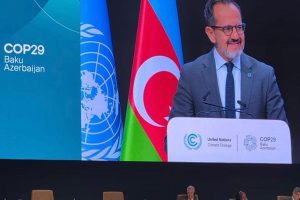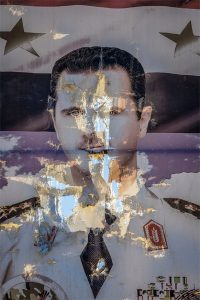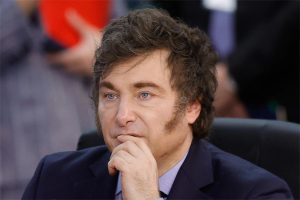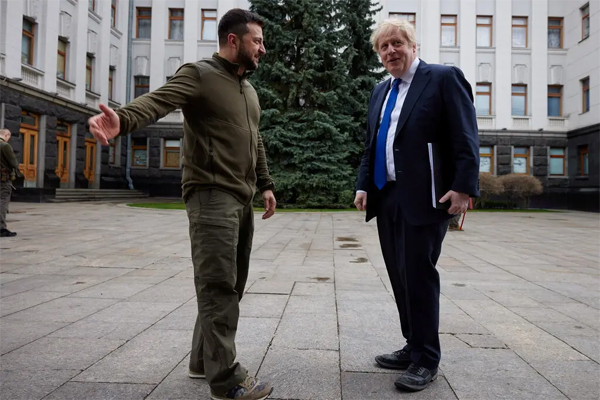
meet with President Volodymyr Zelensky of Ukraine.(Ukrainian Presidential Press Service)
Por Stephen Castle, NYTimes
LONDON
EnergiesNet.com 04 11 2022
Making a surprise visit to Ukraine’s capital, Prime Minister Boris Johnson of Britain on Saturday promised more military equipment and missiles to Ukraine, underscoring his country’s role as Europe’s most enthusiastic supporter of the Ukrainian president, Volodymyr Zelensky.
Britain will provide 120 armored vehicles as well as new anti-ship missile systems to the Ukrainian military, Downing Street said in a statement issued to coincide with the prime minister’s meeting with Mr. Zelensky. That is in addition to £100 million, or about $130 million, worth of military equipment that Mr. Johnson pledged to Ukraine on Friday.
Mr. Johnson and Mr. Zelensky praised each other at a news conference after their meeting for their cooperation since the Russian invasion, Reuters reported. The Ukrainian president called for “a complete ban on Russian energy supplies, and increase the delivery of weapons to us.”
Mr. Johnson replied: “Together with our partners, we are going to ratchet up the economic pressure and we will continue to intensify, week by week, the sanctions on Russia.” He said those measures would include moving away from Russian fossil fuels.
On Saturday, Mr. Johnson also promised that, subject to parliamentary approval, Britain would guarantee an additional $500 million in World Bank lending to Ukraine, taking its total loan guarantee to around $1 billion. Britain has not, however, offered to supply tanks to Ukraine, instead providing equipment that can be defined as defensive.
Britain has also sent Next Generation Light Anti-Tank Weapons, which have proved useful for mobile Ukrainian fighters to use against Russia’s armored vehicles.
Mr. Johnson has established close ties with Mr. Zelensky, talking to him regularly by phone and inviting him to address the House of Commons by video last month, the first of a number of virtual speeches Mr. Zelensky gave to foreign parliaments.
There was speculation last month that Mr. Johnson would visit Ukraine’s capital, Kyiv, after the leaders of Poland, the Czech Republic and Slovenia went there. But that trip did not materialize for weeks, and Saturday’s visit by the British prime minister was a surprise.
On Saturday, Mr. Johnson and Mr. Zelensky walked with a group of soldiers through the streets of Kyiv, according to a video posted online by Ukraine’s Defense Ministry. In the weeks before the Kremlin withdrew troops from around the city, Russian forces had bombarded the city and Mr. Zelensky had posted defiant videos from the streets.
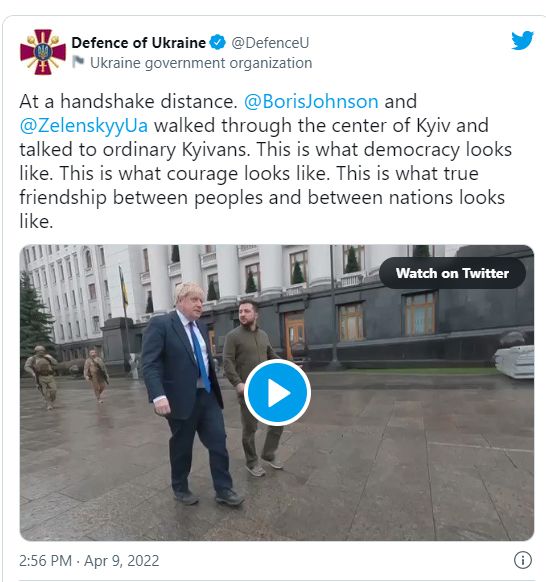
Other Western politicians have also made the trip to Kyiv recently to stress their support for Ukraine and for Mr. Zelensky, including Ursula von der Leyen, the president of the European Commission.
On Friday, she traveled to the Ukrainian town of Bucha, where retreating Russian soldiers are accused of killing dozens of civilians. She condemned the killings and promised to try to speed Ukraine’s efforts to become a member of the European Union.
On Friday, Slovakia’s prime minister, Eduard Heger, also went to Kyiv to meet with Mr. Zelensky and to announce the transfer of an air-defense system to Ukraine. On Saturday the Austrian chancellor, Karl Nehammer, also met with Mr. Zelensky in the Ukrainian capital.
Stephen Castle is London correspondent, writing widely about Britain, including the country’s politics and relationship with Europe. @_StephenCastle
nytimes.com 04 09 2022




